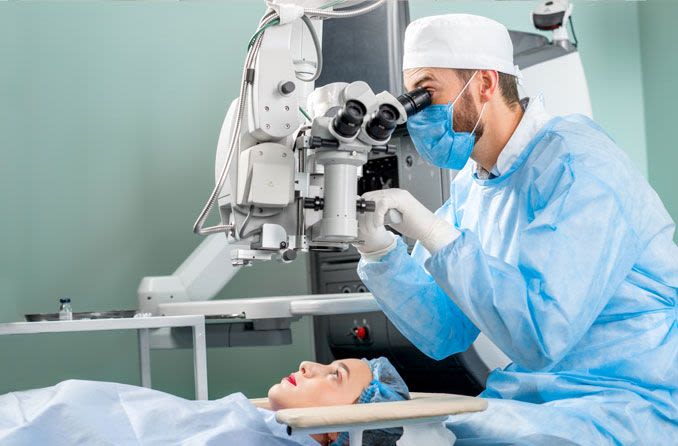How do I know if I need glasses?

It's not always easy to know when you need glasses.
Vision changes can be sneaky. They rarely just show up one day as blurry sight, problems reading fine print or street signs, or difficulty with night vision.
Instead, you’ll likely experience a very gradual decline in your visual acuity that you may not notice at first. Or, you might start squinting or experiencing eye strain, headaches or other discomfort that you didn't have before.
“The classic symptoms of needing glasses include headaches, eye aches, frowning and squinting,” says eye care professional Agustin Gonzalez, OD, FAAO. “Flashes and floaters, sudden loss of vision or eye pain are things that should be looked at immediately.”
Other signs and symptoms that may indicate you need glasses include needing brighter light to see or read clearly, seeing halos around light sources (like car headlights and light bulbs), losing your place while reading, and distorted or double vision.
Signs you may need glasses
The most common vision problems and eye conditions that will make you feel you need glasses (or a change to your current eyeglass prescription) include:
Nearsightedness (myopia), which makes it difficult to see distant objects clearly. Myopes are usually able to see well for close-up tasks.
Farsightedness (hyperopia), a condition where focusing on up-close objects or tasks is challenging, but distance vision is normal.
Presbyopia, defined as the normal loss of near focusing ability that happens to most people sometime after age 40.
Cataracts, or a clouding of the eye's natural lens, which is the most common cause of vision loss in people over age 40. Cataracts are treated with surgery and the implantation of an intraocular lens (IOL).
Symptoms of computer vision syndrome from excessive use of electronic devices with visual displays — including smartphones, computers and tablets — can also be a clue that you need glasses.
Eye strain, dry eyes, blurred vision, red eyes, burning, light sensitivity, headaches, and pain in the shoulders, neck and back are all symptoms of computer vision syndrome.
Anyone who spends a good part of their day staring at LED screens is at risk for developing this condition, including children. Treatment for computer vision syndrome is available, including prescription computer glasses.
Do you need glasses? See an eye care professional
The best way to know for sure if you need glasses is to find an eye care professional near you and schedule a comprehensive eye exam. Seeing an eye care professional is especially important if you’re experiencing any of the vision problems described above.
An eye care professional is the only person who can determine if you need glasses (and possibly other treatments to resolve your symptoms).
During your eye exam, Gonzalez advises that your pupils be dilated, providing the optimal “open window" for your eye care professional to look directly into your eyes to evaluate your ocular health.
“Even though there’s a lot of great technology that allows for imaging of the hidden areas of the internal eye, dilation improves the quality of the image,” he says.
Good vision is essential for virtually all aspects of a normal life. Having an annual eye exam is the best way to maintain healthy eyesight and stay ahead of any future eye problems that may develop.
FIND AN OPTICIAN OR OPTICAL SHOP NEAR YOU: Our locator lists nearby opticians and optical shops to make booking appointments easy.
Page published on Wednesday, 16 March 2022






